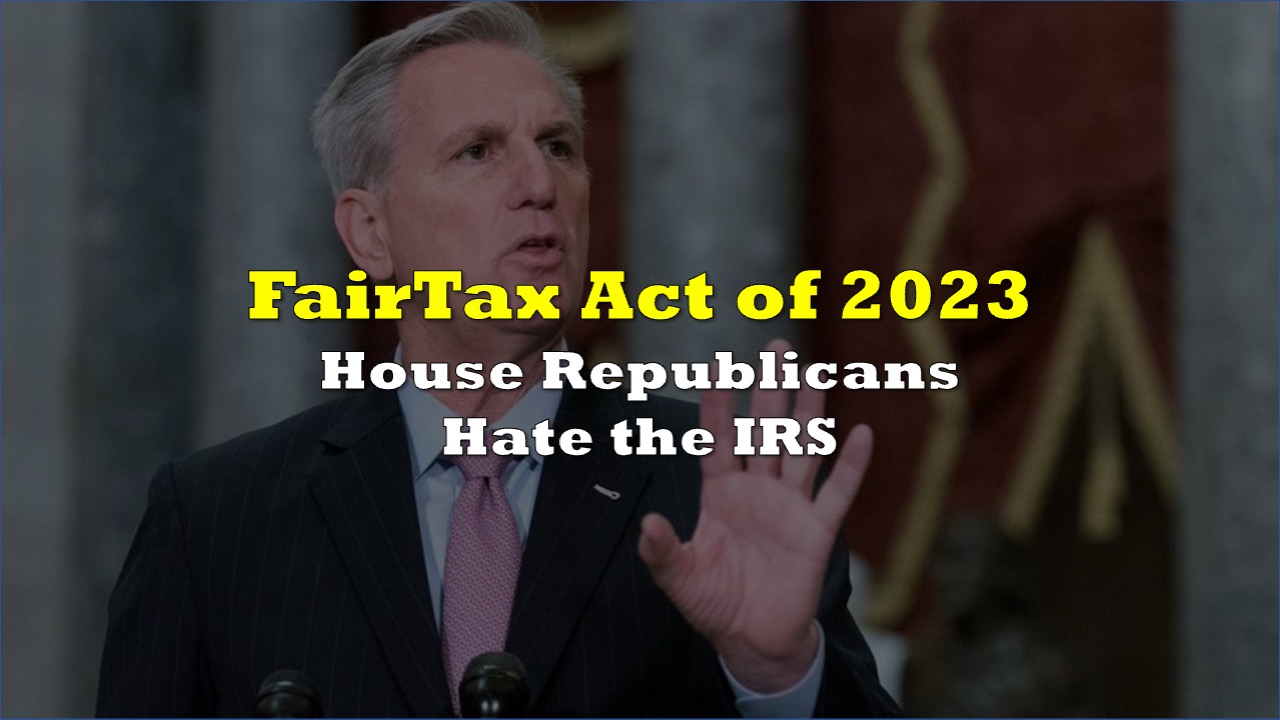Last week, House Republicans announced that they will hold a vote to abolish the Internal Revenue Service (IRS).
This would be the House Republican’s second IRS-targeted bill since the chaos of electing House Speaker Kevin McCarthy earlier in the month. Reports say that holding a vote for this cause is part of the many concessions that McCarthy agreed to give his dissenters in the Freedom Caucus.
Introduced by Georgia Representative Earl “Buddy” Carter, the FairTax Act of 2023 aims to overhaul the US tax code, and replace income tax with a “simplified tax code” that puts national sales tax on everything that the United States buys and consumes apart from used property.
The bill’s proponents’ definition of “simplifying” rests mostly on how there will no longer be a need for annual tax returns, and the notion that with just one rate and no more deductions on income, the exercise of raising money for the government would be more efficient.
But many argue that the proposed overhaul will benefit only the rich and hurt the poor. The poor would bring home more of their income but will need to shell out more for everything else, including their most basic needs. While the rich could actually enjoy significant net tax cuts.
Moreover, abolishing the IRS, which is the heart and center of the bullseye of the bill, is represented as “eliminating” the need for such a federal agency. But, the enactment of FairTax would require the creation of a similar agency that would be in charge of reviewing and adjudicating which purchases should qualify.
This implies that there should be some federal apparatus in charge of collecting trillions of dollars in sales taxes. Which, you know, sounds almost exactly like what something like the IRS is already doing. It’s not as simple as it sounds, too, because there are different rules and exemptions across the US’ 50 states, making the collection process potentially more complex and prone to failure.
There’s also the problem of the actual tax rate. The bill says it’s 23%, meaning if something costs $77, the sales tax is $23 because gross payment is defined by the bill to include the tax, which makes it much more confusing, and actually disingenuous.
Analysts compute it to be actually around 30%. If you buy something that’s worth $100, the sales tax is $30, and you will be not costing up the item you’re buying to $130 to pay 23%. Some are also saying that the amount could also be amended to cost higher.
This isn’t the first time that a bill of this sort has been introduced in Congress. And, like the earlier bill to repeal the $80 million additional funding of the IRS, it’s unlikely that this measure would see the light of day at the Senate, much less see ink on the desk of President Joe Biden. But these moves are indicative of how far House Republicans are willing to go to be a stick in the bum of the IRS.
The next time you hear Republicans in Congress complain about increased IRS funding, remember that the richest 1 percent of Americans evade $163 billion in taxes each year. That’s who the GOP is protecting.
— Robert Reich (@RBReich) January 10, 2023
Just two weeks ago, many House Republicans expressed anger over how six years of former President Donald Trump’s tax returns were released by the Democratic members of the House Ways and Means Committee.
Additionally, the IRS’ collection this season will also help determine how long US Treasury Secretary Janet Yellen will be able to keep the country from default risk.
Information for this story was found via Forbes, Fox News, CNN, CNBC, and the sources and the companies mentioned. The author has no securities or affiliations related to this organization. Views expressed within are solely that of the author. Not a recommendation to buy or sell. Always do additional research and consult a professional before purchasing a security. The author holds no licenses.






